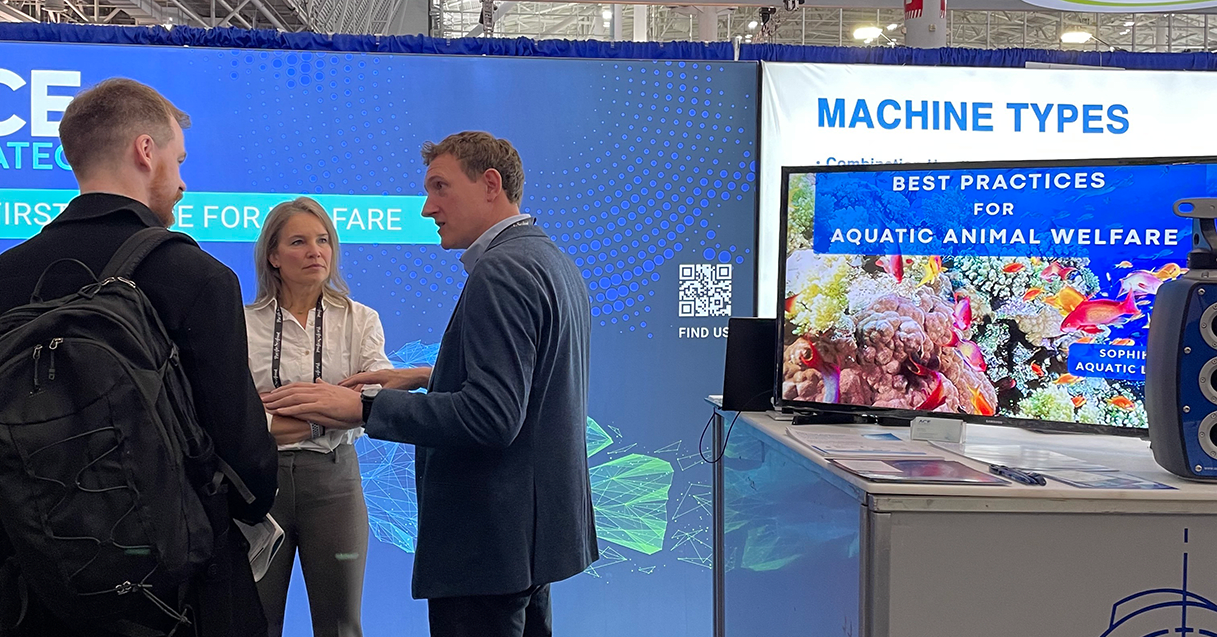Aquatic Life Institute is thrilled to share the 3rd edition of our report: “Marine Capture Fisheries: Best Practices for Aquatic Animal Welfare”
This report, backed by the support of over 130 organizations, showcases the advancements that fishing companies and research institutes are making to improve animal welfare practices in capture fisheries. We highlight the innovative approaches that are being studied and introduced to tackle challenges around mixed-species dynamics and unpredictable sea conditions. Despite the inherent complexities, there is a commendable surge towards more humane practices within capture fisheries. Our report outlines the best practices for animal welfare throughout each of the stages of suffering in capture fisheries, from the initial stages of capture and retrieval, to onboard handling, stunning & slaughter, and bycatch.
Just last week, our team was at the Seafood Expo North America event in Boston, where we joined Ace Aquatec (featured in our report) for a presentation highlighting their in-water electrical stunning system which won the 2022 Innovation Award at Nor-Fishing.
Aquatic Life Institute continues to advocate for humane practices in capture fisheries. Through collaborative efforts with industry leaders, we strive to transform the landscape of fishing practices, placing sustainability and ethics at the forefront of our efforts.



